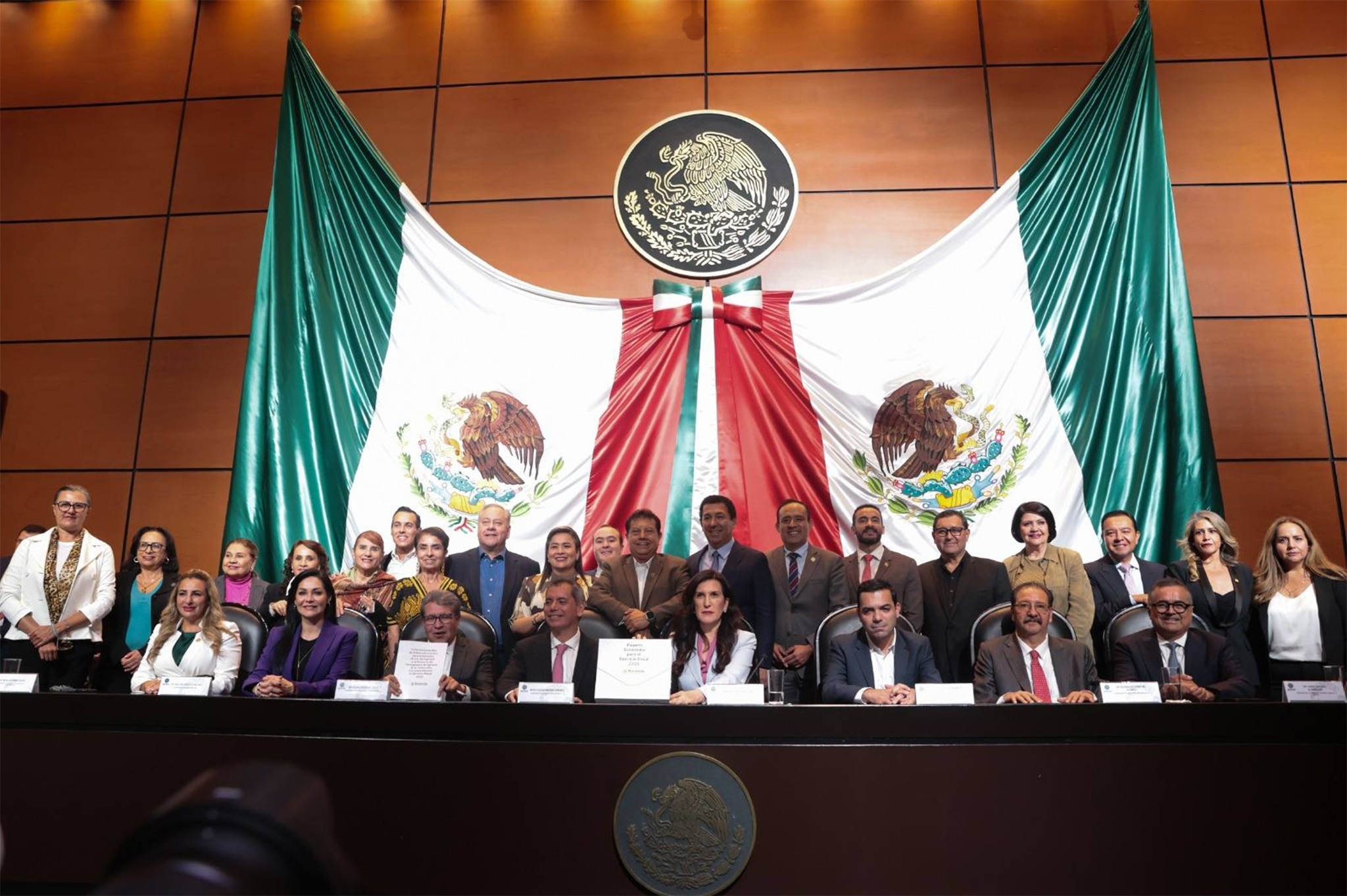It’s Irresponsible to Continue with Budgets Cuts & The USMCA
This column by Arturo Huerta González originally appeared in La Jornada de Oriente on September 9, 2025. La Jornada de Oriente is the edition for Puebla state of La Jornada, Mexico’s premier left wing daily newspaper. The views expressed in this article are the author’s own and do not necessarily reflect those of the Mexico Solidarity Project.
For years, every Treasury Secretary has repeatedly delivered the same line of argument every time they present their economic package [term for the annual budget – Editor] to Congress. The current Secretary is no exception. He points out that the 2026 Economic Package “is designed to maintain responsible public finances, with a sustainable debt trajectory and room for maneuver that guarantees confidence for those committed to the country.” One wonders: responsible for whom? How responsible is a fiscal policy that prioritizes budget cuts (a 30% drop in public investment in the first half of 2025 compared to the same period in 2024) going to be in a context of falling private sector investment and consumption, and a looming drop in exports due to tariffs imposed in the US? Such a fiscal policy will further contract economic activity. Instead of such a policy being responsible for boosting growth and avoiding recession, it is “responsible” for ensuring confidence in the financial sector, which is in favor of budget cuts to avoid pressures on prices, as well as on the external sector, that could compromise exchange rate stability. The Treasury continues to sacrifice economic growth and job creation to continue acting like Banxico [Mexico’s central bank] with high interest rates in favor of financial sector profits, accentuating wealth inequality.
It is noted that the economic package will continue to expand social protection, with the aim of reducing inequalities. The problem is that social spending is supported by budget cuts that slow the economy, increase unemployment and underemployment, poverty and crime, and are not countered by social policy. Despite continuing with the same restrictive policy, the Treasury does not consider a recession in the national economy , and this is imminent, since there are no internal or external factors to boost growth.
Fiscal policy cannot continue to place discipline and the reduction of public debt as the guiding principles of public finances, as this is what’s led to the economy’s stagnation and the inability to face the challenges of technological development, import substitution, reduction of the foreign trade deficit, unemployment and underemployment, improving health and education services and many other services that have been neglected.
It is important that the sectors affected by predominant neoliberal policies demonstrate to stop these policies and demand the implementation of policies meeting national demands.
Regarding the US demands expressed by Secretary of State Marco Rubio that Mexico remove barriers to bilateral trade to expedite free trade, the government should not give in to this. Mexico has been a loser in free trade, which has led us to have less manufacturing, less production of basic grains, less formal employment, low wages, permanent pressures on the external sector that have condemned us to stagnation and dependence on the inflow of capital, dominated by high interest rates, budget cuts, less government participation in the economy and increasing privatization and foreignization of the economy. The US wants to invest and have a greater participation in the CFE, in Pemex, in the lithium market, in the financial sector, as well as flood the national market with transgenic agricultural products, at the cost of continuing to displace national producers and putting the health of the population at risk.
Those who have won in free trade have been the transnational companies, both those that control the country ‘s exports and those that supply the national market from their country of origin , at the cost of lower economic growth and pressure on the external sector that has over-indebted the country to cover the external deficit.
The Mexican government has indicated that it will establish tariffs on countries with which it does not have a trade agreement in order to protect national industries, as if imports from the US were not harming national production . Just as the US is placing tariffs on Mexico’s exports, Mexico should establish tariffs on all imports to resume internal productive development, the generation of better-paid formal employment, and to reduce our commercial and financial dependence, which has led us not only to lower economic growth, but also to an increasing dependence on the inflow of capital and an economic policy unable to satisfy national demands.
The country ‘s reactionary sectors, led by PAN deputies, demonstrated on September 4, 2025, in the Chamber of Deputies in favor of US demands to set aside reforms that protect Pemex and the CFE from the growing participation of foreign companies. There is a widespread position among all parties that the Mexican government must comply with the international commitments present in the T-MEC, as if these would translate into greater growth and well-being for the country.
It is important that the sectors affected by the predominant neoliberal policies – such as free trade , free movement of capital, budget cuts, high interest rates, cheap dollars (which make imports cheaper, displacing national production), as well as the deregulation of the banking sector that earns what it wants and decapitalizes debtors and does not boost national dynamics – must demonstrate to stop these policies and demand the implementation of policies that meet national demands.
Arturo Huerta González is Professor of the Graduate Program at the Faculty of Economics of UNAM since 1975, a columnist responsible for the Alternativa Económica column at La Jornada de Oriente, and the author of La crisis en Estados Unidos y México: 10 años después.
-
CNTE Announces 72 Hour National Strike & March to Mexico City’s Zócalo
The class-conscious teachers union will also make “courtesy visits” to the embassies of countries who committed atrocities against Iran, to show their rejection of US imperialism.
-
Yet Another Mexican Citizen Dies in ICE Custody
The unidentified victim is the 9th Mexican citizen to have been killed in ICE detention since the beginning of 2025; this time in Adelanto, California.
-
Let’s Talk About Migration: Trumpist Persection
Millions of women who have endured unspeakable violence on their migration journey are now being persecuted in the United States by an extremely xenophobic and misogynistic government, led by Donald Trump,




